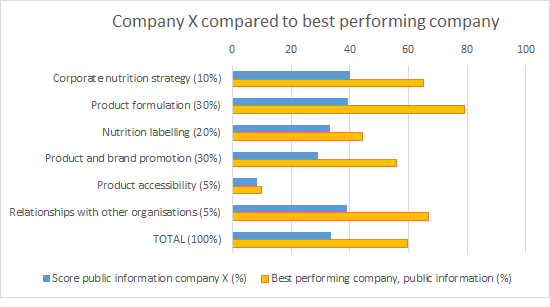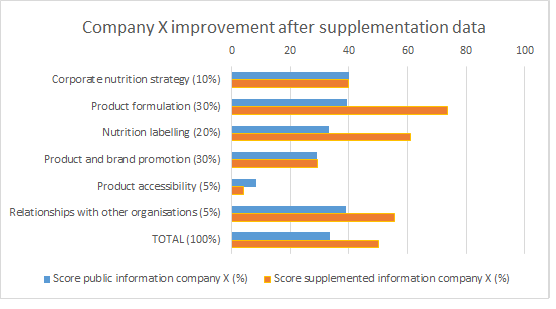By Stefanie Vandevijvere and Iris Van Dam
 Tackling child obesity requires a comprehensive societal response, including government policies, community support, and wide-scale action from the food industry. The WHO has identified a number of actions that the food industry can take to create healthier food environments, including limiting the levels of salt, free sugars, saturated fat, and trans fat in products; ensuring that healthy and nutritious choices are available and affordable to all consumers; practicing responsible marketing of foods high in salt, free sugars, and saturated fats, especially to children; and providing consumers with clear, easily understood, and evidence-based nutrition information on food labels.
Tackling child obesity requires a comprehensive societal response, including government policies, community support, and wide-scale action from the food industry. The WHO has identified a number of actions that the food industry can take to create healthier food environments, including limiting the levels of salt, free sugars, saturated fat, and trans fat in products; ensuring that healthy and nutritious choices are available and affordable to all consumers; practicing responsible marketing of foods high in salt, free sugars, and saturated fats, especially to children; and providing consumers with clear, easily understood, and evidence-based nutrition information on food labels.
Within the STOP project, work is ongoing to assess the impact of businesses on obesity and population nutrition adapting and applying tools and processes initially developed by the International Network for Food and Obesity/NCDs Research, Monitoring and Action Support (INFORMAS). Among others, two detailed case studies are being conducted in Belgium and France with the idea for the methodology and processes to be taken up by research groups in other countries and to develop an online tool for businesses to update information on commitments and re-scoring after the life of STOP. To date, the biggest and most relevant food companies have been selected for Belgium and France (about 30 companies per country). All publicly  available data on commitments have been gathered and scored for these companies. The reports summarizing the evidence on the commitments and preliminary scorecards for each company have been finalized, including how they are doing compared to the best performing company (Figure 1). In both Belgium and France, these are currently being provided to the companies to give them the opportunity to verify the collected information and supplement it where necessary. This engagement sometimes allows companies to improve their scores (Figure 2). In Belgium the liaison with companies is going well, but in France it proves more difficult to identify and liaise with the right contacts within each company; additional efforts will be needed. In the meantime, performance indicators have also been developed for all industry sectors and policy domains and a preliminary selection has been made of which indicators can be applied within the scope of this project.
available data on commitments have been gathered and scored for these companies. The reports summarizing the evidence on the commitments and preliminary scorecards for each company have been finalized, including how they are doing compared to the best performing company (Figure 1). In both Belgium and France, these are currently being provided to the companies to give them the opportunity to verify the collected information and supplement it where necessary. This engagement sometimes allows companies to improve their scores (Figure 2). In Belgium the liaison with companies is going well, but in France it proves more difficult to identify and liaise with the right contacts within each company; additional efforts will be needed. In the meantime, performance indicators have also been developed for all industry sectors and policy domains and a preliminary selection has been made of which indicators can be applied within the scope of this project.
Would you like more detailed information regarding the methods applied?
Website: http://www.bia-obesity.org/
Contact:
Stefanie Vandevijvere (Stefanie.Vandevijvere@sciensano.be)
Iris Van Dam (Iris.VanDam@sciensano.be)

